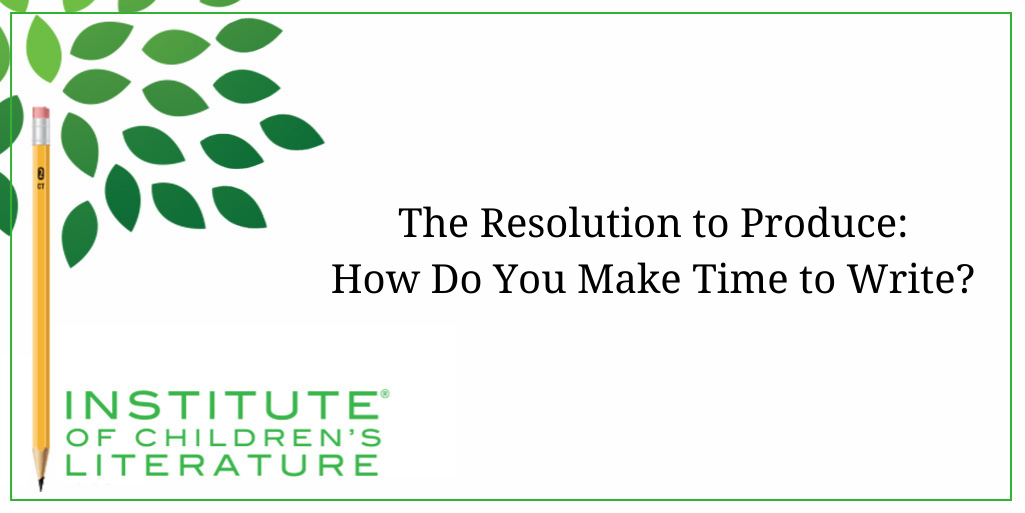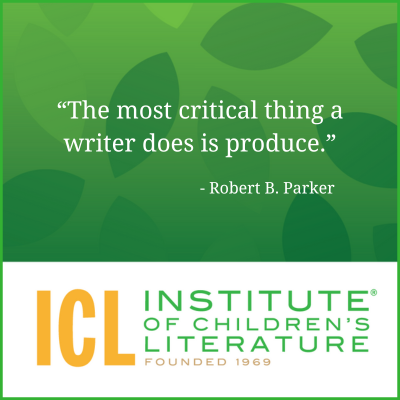
5 Ways Writers Can Prep for 2025 Goal Setting
Before we roll on to the new writing year, let’s harness our optimism for the blank slate before us and prepare for our 2025 Goal Setting just for writers.

The new year begins with so much potential. Each January, I’m handed a huge pot of potential. I might do just about anything with a whole year stretching before me. But I also understand that unless I’m careful, I’m not going to fulfill that potential. Left to chance, I won’t actually do much. I won’t read as many books as I intended. And I won’t write as many either.

For many people who want to write, the actual time spent writing is relegated to when I have time. One thing adulthood taught me right away: you don’t have the time for anything. Adulthood whittles away all the free time I remember having as a kid. I read books almost daily back then. I could check out a huge pile of books and have them all read by the time they were due. I can’t even imagine that now. I had so much free time that sometimes I was bored with nothing to do. (Which I wisely did not tell my mother because the things she found for me to do always involved scrubbing something).
Can you imagine how great it would be to have all the free time you wanted and the leisure to enjoy it without guilt?
Okay, fantasy over, back to reality. These days, if I want to accomplish something, I need to plan around getting it done. That includes exercise, picking up a new hobby, reading, or writing. Things simply fall by the wayside with the busy bits of being an adult.

Think about a doctor’s appointment. If you simply ignore it and go do other things, many doctors’ offices will charge you for missing the appointment. Consider instigating such a system. If someone insists that you do something that requires you to skip your writing appointment, there is a charge. For kids, it might be extra chores. For a spouse, it could be something else that makes your life easier. And for friends, really, you need to take a stand. No one gets to be a successful writer by not writing. The first resolution should be to be bolder about guarding your writing time once you schedule it.
Making these writing appointments requires courage to stand up to all the things that want to snatch them away from you, but it also requires good sense. Your writing appointments need to be made at a time you can actually write. As I’ve said many times, I could never be a night writer. My productivity and my quality would suffer horribly.
Scheduling without thinking about my own best condition for writing is important. So is being reasonable about those things that cannot be moved. When my daughter was in school, it would have been foolish to try writing during the time she was getting ready for school. The constant interruptions would be a sure thing. And she definitely had a better start to her day if I paid attention to keeping her on task. The poor thing is like me that way. That meant I either needed to schedule writing time super early and know I had to be done when it was time to get her going, or I needed to schedule it after she had left for the bus.

Even when I was single, there were plenty of things that whittled my time and energy. When I worked outside of writing, I put in far fewer writing hours than when I quit the extra job and focused on writing. That was true both because of the time requirements of having another job, but also because a good deal of my energy and creativity were being used somewhere else.
That’s not to say you should quit your day job. It only means that a person with a day job must factor that into goals, just as a person with children must consider them in their writing time equation. So be realistic about what will fit into your life. And don’t talk yourself down because you don’t meet the productivity of other writers. There have been successful writers who produced very slowly. It’s okay if it turns out you’re one of them.
Another thing to keep in mind is that writing a book can feel like a marathon, but it is best taken on as a series of sprints. This is one reason why assigning writing time in bigger clumps doesn’t always result in more productivity. If, for example, I went off on a private retreat to Highlights where I didn’t have to do anything but write, I—personally—probably would produce about the same amount as I do at home. However, I would end up recharged. I’d walk in the woods and eat great food. And I’d write. But probably only about the same as I do now.
I’m a sprinter. I sit down, write a whole bunch quickly, then get up and wander around or make a cup of tea or clean something. Then I go back, write another quick burst, and get up again. If I try to force myself to stay in place, it doesn’t increase productivity for me. It’s simply not how my brain works. I’m a twitchy writer.
Recognizing these traits about myself was huge in making me a more productive writer because I stopped trying to do what other writers do naturally. Instead, I planned around what I do naturally. I made time and space to do it. Then I became massively more productive. It’s fun to try other people’s writing productivity tips but do it only to find what works for you, not as a means to discover more ways to be disappointed in yourself.
No one sticks to their writing schedule all the time. Some of us stick to it better than others, but every writer gets sick, attends family events, or hits unexpected bumps in the road. And sometimes, those bumps are simply our own burnout. When you don’t manage to meet your goals, don’t immediately begin beating yourself up. Recognize you’re in good company. We all fall short at one time or another. The energy you put into talking down to yourself is energy better spent getting into a place where you can write again.

As adults, we don’t get enough play. We have things that use up our time—including browsing the web and watching television—but we don’t simply play nearly as much as we should. Writing can be a type of play if you allow it. You can throw open the gates of possibility inside you. But only if you make time for it.
Schedule some writing playdates with yourself. Let yourself enjoy them, even if it means doing silly writing prompts or ridiculous writing games. Bring in the joy this new year and make time for it. Your productivity, your quality, and you will benefit from it.
With over 100 books in publication, Jan Fields writes both chapter books for children and mystery novels for adults. She’s also known for a variety of experiences teaching writing, from one session SCBWI events to lengthier Highlights Foundation workshops to these blog posts for the Institute of Children’s Literature. As a former ICL instructor, Jan enjoys equipping writers for success in whatever way she can.

Before we roll on to the new writing year, let’s harness our optimism for the blank slate before us and prepare for our 2025 Goal Setting just for writers.

Writers can be thin-skinned when it comes to getting feedback on their work. Let’s look at 4 ways to positively deal with constructive criticism!

Rejection is part of the territory when it comes to being a writer. Today we offer reflection for writers to help redirect your efforts after a rejection.
1000 N. West Street #1200, Wilmington, DE 19801
© 2024 Direct Learning Systems, Inc. All rights reserved.
1000 N. West Street #1200, Wilmington, DE 19801
© 2024 Direct Learning Systems, Inc. All rights reserved.
1000 N. West Street #1200, Wilmington, DE 19801
© 2024 Direct Learning Systems, Inc. All rights reserved.
1000 N. West Street #1200, Wilmington, DE 19801
© 2024 Direct Learning Systems, Inc. All rights reserved.

1000 N. West Street #1200, Wilmington, DE 19801
© 2025 Direct Learning Systems, Inc. All rights reserved.

1000 N. West Street #1200, Wilmington, DE 19801
©2025 Direct Learning Systems, Inc. All rights reserved. Privacy Policy.
2 Comments
Great encouragement! Thanks!
Thanks Angie. I’m glad. – J